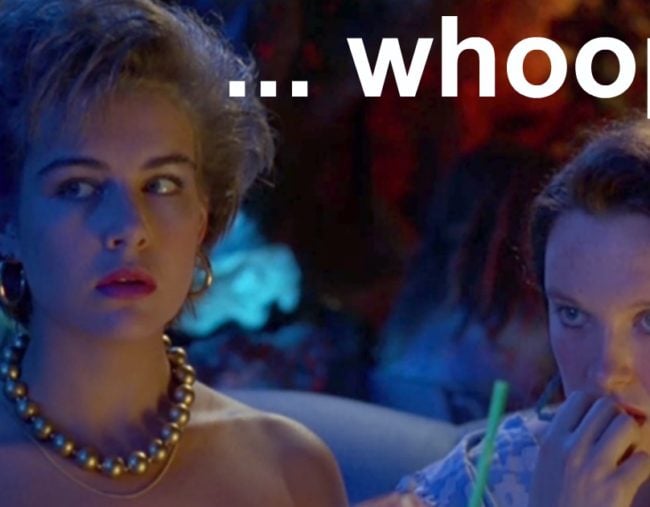- Shonica Guy is bravely taking on Crown casino and Aristocrat (pokies manufacturer) in Australia. She's trying to hold them to account for the damage they cause through deceptive technology.
- The applicant, Shonica Guy, has suffered from gambling addiction for 14 years. She sought a declaration that the Dolphin Treasure gambling machine was designed to be addictive and produce uneven results.
Law firm Maurice Blackburn brought the case on behalf of Shonica Guy, whose gambling addiction lasted 14 years.
© AAP Image/Joe Castro Shonica Guy and Maurice Blackburn's Jennifer Kanis (right) launched the case in September.A former gambling addict who argued a popular poker machine was deceptive and misleading has lost her landmark court case against Melbourne's Crown Casino and the game manufacturer.
Law firm Maurice Blackburn brought the case on behalf of Shonica Guy, whose gambling addiction lasted 14 years.
It argued the Dolphin Treasure machine, which is manufactured by Aristocrat and available to players at Crown, had been deceptively designed to give players the impression they had won, when they had in fact lost money.
But the Federal Court has ruled the machine complied with regulations.
Lawyers for Ms Guy claimed the machine uses light, sound and images to fool gamblers, and has an oversized fifth reel, which misrepresents the true chances of winning.
Both Crown and Aristocrat denied they had engaged in misleading and deceptive conduct.
Lawyers for Aristocrat told the trial their machines had been scrutinised by regulatory bodies and complied with strict standards.
Peter Jopling QC told the court Aristocrat was operating in an 'intensely regulated' industry.
'We say that we've followed the standards to a tee and nobody has said that we haven't,' Mr Jopling said.
'They haven't withdrawn our licence for the machines.'
Sonica Guitar
There are 38 Dolphin Treasure games among the 1,080 Aristocrat brand poker machines on the floor of the Crown Casino.
Lawyers for the casino argued the machines were tested and approved by the Victorian Commission for Gambling and Liquor Regulation.
They said Crown was doing nothing more than making authorised machines available.
Victorians lose billions to pokies
Every year Victorians lose more than $2.6 billion on the state's 27,000 poker machines that operate outside of Crown Casino.
Data for Crown's pokies is not published by the state regulator.
The State Government receives more than $1 billion in tax revenue from pokies every year.
Crown is also under investigation from the state's gambling regulator following allegations from whistle-blowers that staff at the casino tampered and manipulated poker machines to boost profits.
Need help or support?
Shoneca Marsh
* Call Lifeline on 13 11 14
* Gambling Help Online
* Gamblers Anonymous
* Relationships Australia
Tuesday 6 February 2018 @ 12.18 p.m. | Legal Research | Trade & Commerce
On 2 February 2018, the Federal Court of Australia in Victoria handed down its judgement in the landmark case of Guy v Crown Melbourne Ltd (No 2) [2018] FCA 36. The Court found in favour of Crown Melbourne Ltd (‘the respondent’), finding that the specific machine used by the respondent complied with regulations and was not the result of unconscionable conduct, thus clearing the respondent of any wrongdoing.
Facts
The applicant, Shonica Guy, has suffered from gambling addiction for 14 years. She sought a declaration that the Dolphin Treasure gambling machine was designed to be addictive and produce uneven results. The legal action focussed on the uneven spread of symbols needed to win across the five reels central to the game, giving players a sense that they were winning when in reality they were losing money, as well as alleging that the 'return to player' (RTP) statements issued by the machine were confusing.
Legislative Background
The applicant's action focussed in particular on the Competition and Consumer Act 2010 (Cth) section 21:
(a) the supply or possible supply of goods or services to a person (other than a listed public company); or
(b) the acquisition or possible acquisition of goods or services from a person (other than a listed public company);
engage in conduct that is, in all the circumstances, unconscionable.
Decision of the Court
Justice Mortimer, sitting alone, found that while the RTP statements on the machines may be confusing to the ordinary gambler, it would only cause a fleeting impression on the player:
She further found that the applicant did not prove any unconscionability in the conduct of the respondent, especially given the particular way the applicant framed her claim, and with regard to the fact that there was no proof of a particular individual or group of individuals who have been the victim of such alleged unconscionable conduct:

Shonica Gooden
Response to Decision
Dr Charles Livingstone, professor of public health at Monash University, predicted that this was the first of many similar actions regarding gambling regulation. He said:



The manufacturer of the Dolphin Treasure machines, Aristocrat Leisure, who was the second respondent in the matter, said in a statement released to the stock market:
TimeBase is an independent, privately owned Australian legal publisher specialising in the online delivery of accurate, comprehensive and innovative legislation research tools including LawOne and unique Point-in-Time Products. Nothing on this website should be construed as legal advice and does not substitute for the advice of competent legal counsel.
Sources:

Guy v Crown Melbourne Limited (No 2) [2018] FCA 36
Competition and Consumer Act 2010 (Cth) available on TimeBase's LawOne service.
Richard Willingham, ‘Crown casino, Aristocrat face lawsuit alleging deceptive conduct over poker machines,’ (The Age), 6 September 2016.
Nick Toscano, ‘Former gambling addict loses landmark poker machine case against Crown, Aristocrat,’ (The Sydney Morning Herald), 2 February 2018.
Media Release: ‘Aristocrat Welcomes Federal Court Judgment In Guy Litigation.’